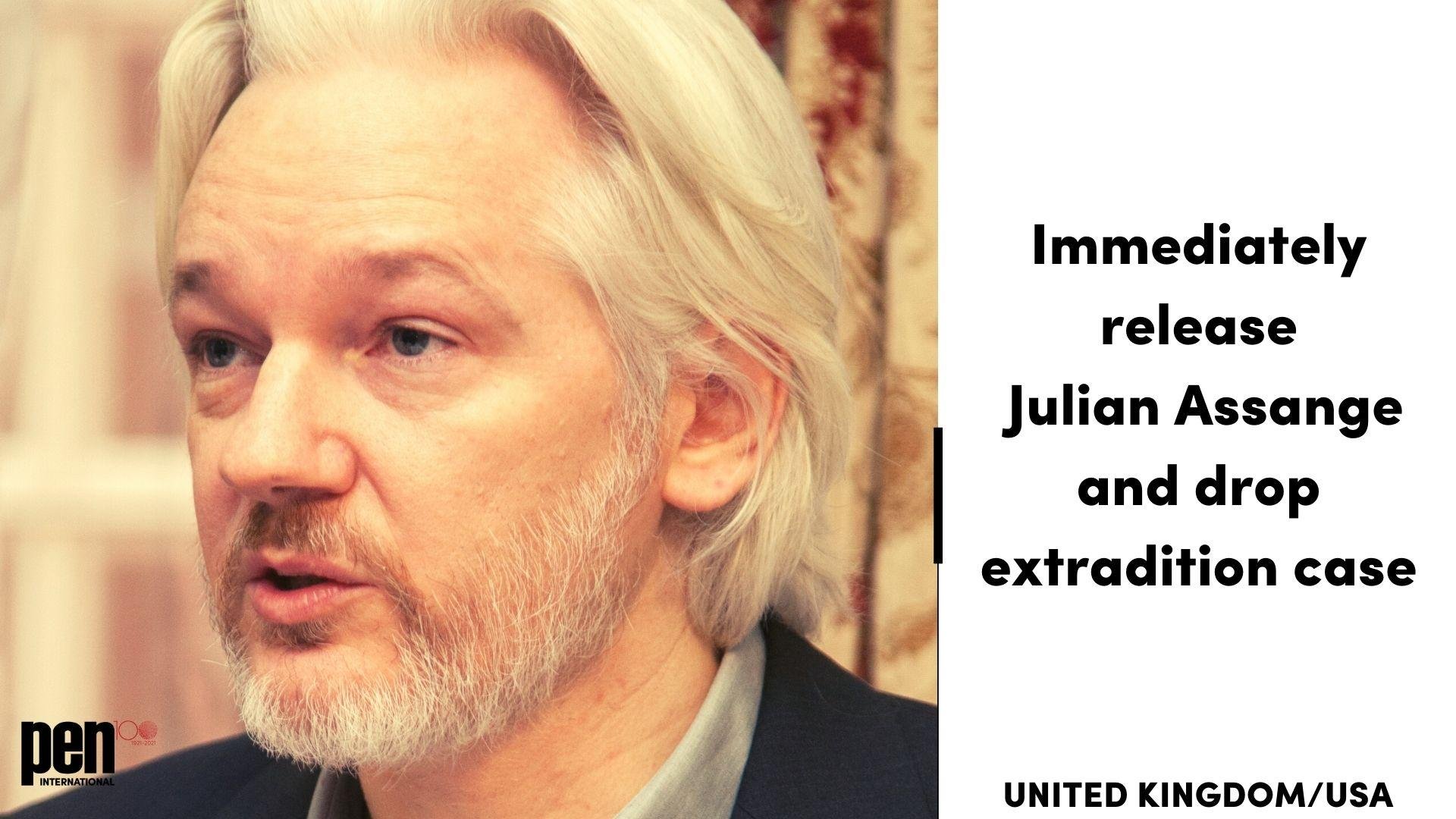United Kingdom/USA: Immediately release Julian Assange and drop extradition case
Julian Assange (CC Cancillería del Ecuador))
On 11 August 2021, the UK High Court widened the scope of the US government’s appeal in the extradition case against WikiLeaks founder and publisher Julian Assange. Although a judge ruled in January 2021 that Assange should not be extradited to the US because of concerns over his mental health, the US government has now been granted permission to appeal on five grounds, including a reassessment of the expert evidence used to evaluate Assange’s risk of suicide. The full appeal will be heard at the High Court on 27 and 28 October. Assange faces charges of espionage and conspiracy to commit computer intrusions, which carry up to 175 years in prison.
Responding to the news, Salil Tripathi, Chair of PEN International’s Writers in Prison Committee, said:
‘The charges faced by Julian Assange in the US represent a huge threat to media freedom and investigative journalism everywhere. Our position is clear. Espionage laws should not be used against journalists and publishers for disclosing information of public interest. We once again urge the US authorities to drop the case against Assange and to withdraw their extradition appeal.’
Daniel Gorman, Director of English PEN, said:
‘The UK authorities must uphold their commitment to press freedom and prevent Julian Assange’s extradition to the US. Assange has been held in Belmarsh High Security Prison for over two years. This case has deeply concerning implications for press freedom and as such he should be released as a matter of urgency.’
Background information
WikiLeaks founder and publisher Julian Assange has been held since April 2019 in the UK’s Belmarsh High Security Prison for breaching the UK Bail Act. He had taken refuge in the Ecuadorian embassy in London in 2012 to avoid extradition to Sweden.
In May 2019, Assange was indicted by the US Justice Department on 17 counts of violating the US Espionage Act for his role in obtaining and publishing classified military and diplomatic documents in 2010. UN experts, free expression groups and scores of human rights lawyers have made it clear that this prosecution raises profound concerns about freedom of the press under the First Amendment to the US Constitution and sends a dangerous signal to journalists and publishers worldwide. US prosecutors had already charged Assange with one hacking-related count, which also includes a list of actions that fall under journalistic activities. In June 2019, the United Kingdom’s home secretary signed a US extradition order for Assange. Charges carry up to 175 years in prison. On 24 June 2020, the US Department of Justice issued a second superseding indictment against Assange, adding no new charges but expanding on the charge for conspiracy to commit computer intrusions.
On 4 January 2021 the District Judge of the Westminster Magistrate’s Court ruled against the request to extradite Assange on medical grounds relating to his poor mental health. However, she ruled that there were otherwise grounds for the extradition request and rejected defence arguments that Assange faced a politically motivated prosecution that would override free speech protections.
The January decision relied on evidence from Michael Kopelman, a professor of neuropsychiatry at King’s College London, who told the court he believed Assange would take his own life if extradited. Yesterday, the presiding judges sided with the US authorities’ counsel, who argued that Kopelman’s testimony had been misleading, as it concealed the fact that Assange had a partner and two small children.
In May 2019, the UN Special Rapporteur on Torture and Other Cruel, Inhuman or Degrading Treatment or Punishment visited Assange in prison and reported that he showed ‘all the symptoms typical for prolonged exposure to psychological torture’. In December 2020, he once again urged the UK authorities to immediately release Assange from prison or to place him under guarded house arrest during US extradition proceedings.
For more information about PEN’s work on Julian Assange, including PEN’s resolution on the abuse of the US Espionage act, and the prosecution of Assange as a threat to freedom of expression, click here.
For further details contact Aurélia Dondo at PEN International, Koops Mill, 162-164 Abbey Street, London, SE1 2AN, UK Tel: +44 (0) 20 7405 0338 email: [email protected]

